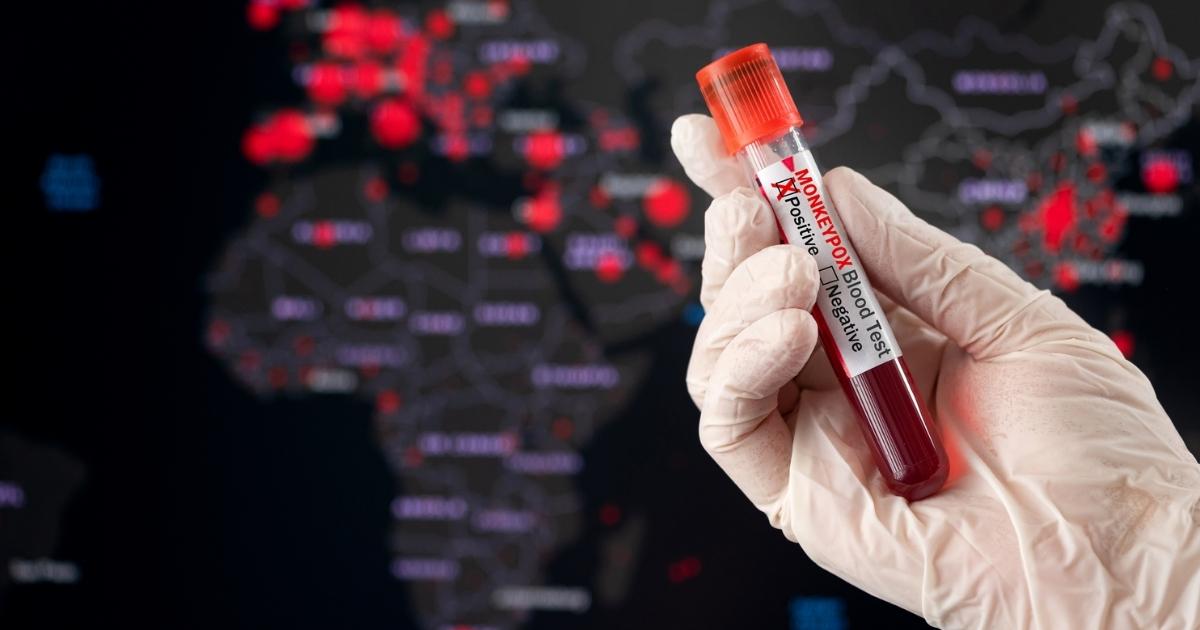MSM and LGBTQ communities have been having a hard time following this year’s monkeypox outbreak. Among all monkeypox cases, most of the cases are among men who have sex with men (MSM) and gay men. The first four cases of the 2022 monkeypox outbreak included 4 men who identified as men who have sex with men (MSM). The first case was believed to be imported as the individual had traveled to Africa. The second, third and fourth case, however, had no recent travel history and were not contacts of each other. Ever since, Europe has been the epicenter of monkeypox cases.
To give a little bit of a background about the disease’s spread, it was also believed that two big rave parties in Spain and Belgium contributed to the transmission of the virus as it was primarily attended by gay men. The monkeypox virus is said to have moderate transmissibility, meaning that the likeliest method of transmission may be prolonged close physical contact (involving skin lesions) and sexual contact. Prior to 2022, the United Kingdom had seen several cases of monkeypox (in 2021, 2019 and 2018) which were mainly caused by travel links to endemic countries. However, this is the first time that the transmission chains are not really due to travel history to West and Central Africa. This is also the first time that MSM is infected by a disease on a global scale.
Not A Gay Disease
Since the outbreak took place, there have been stigmas around the gay and MSM communities that blame and shame them. Monkeypox was dubbed ‘the gay disease’. Although monkeypox seems to currently spread around sexual and social networks of gay, bisexual men and MSM, it is by no means a gay disease. In fact, there is no such thing as it. Regardless of a person’s sexual orientation, no person is really immune to viral and bacterial infections. Anyone can get monkeypox and this includes men, women, heterosexuals, transgender and those who identify as non-binary. Gay and bisexual men carry no intrinsic or inherent characteristics which make them more prone to monkeypox, nor do they have higher likelihood to spread the virus.
According to a public health advisory issued by WHO, the risk of monkeypox is not limited to MSM and any person who has had close physical contact with an infected person is at risk. It is, however, still important to learn about the disease after knowing that this disease has infected certain communities to minimize transmission and stop the outbreak. Sexual contact is not the only form of close physical contact as touching, kissing and being face-to-face also count.
It is imperative that we do not stigmatize or put labels on gay and MSM or Africans as carriers of monkeypox. Without the emerging stigmas in regards to monkeypox, gay and bisexual men have had their fair share of being subjected to discrimination, injustice and inequality. In some countries, laws condemning homosexuality and same-sex behavior still apply. This can ultimately result in reluctance in MSM to be honest about and disclose their same-sex behavior. In the end, they will not admit that they are part of social and sexual networks which are widely impacted by monkeypox, slowing and hindering prevention of the disease. Stigmas are counterproductive and prove to be a continuous public health threat. This circumstance should not allow for worsening homophobia and racism. Spreading hate and scapegoating will not make monkeypox subside.
Spreading The Right Message Is Important
Realizing how sensitive this subject is, it is very important for officials and those with authority to carefully select and cherry pick the words to spread. In July, WHO-Director General, Tedros Adhanom Ghebreyesus encouraged gay and bisexual men to limit the number of sexual partners to curb the spread of the virus. This recommendation triggered a hoax demonizing the LGBTQ community.
Crafting the right message to warn gay and MSM about monkeypox risks proves to be challenging. When not done wisely and tactfully, it can fuel hate from other parties. In addition, it can also mean a wide array of unintended consequences: heterosexuals may think they are immune to the disease as well as irresponsible parties may see this as the chance to spread hate and bigotry.
Learning from how the gay communities were decimated in the 1980s for being seen as ‘spreaders’ of AIDS, it is important to tackle this disease from the public health perspective in order to avoid LGBTQ communities being shamed and condemned. Several LGBT communities have been on the move to minimize stigmas. For instance, Grindr let out monkeypox alerts in recent weeks. Spreading the right message does not mean creating panic or raising fears because compared to viral diseases such as Coronavirus, monkeypox is easier to contain.
Recommendations by WHO
According to Tedros Adhanom Ghebreyesus, it is not impossible to stop the monkeypox outbreak. The most important thing is for communities, countries and individuals to educate and get informed on the disease, consider the risks seriously as well as take the necessary steps to protect themselves and vulnerable groups.
The best way to minimize monkeypox cases is to reduce exposure. Since the current cases are widespread among MSM, it is recommended that MSM reduce the number of sexual partners and reconsider sex with new partners. Reducing the number of sexual partners and being aware of the situation are seen as the most effective way because condoms cannot avoid one from getting infected with monkeypox. To date, there is no evidence that monkeypox can spread through sexual fluids such as semen. Besides this encouragement, individuals who are suspected of monkeypox should seek specialist care and self-isolate to prevent spreading the disease further. On the other hand, people with multiple sexual partners should not let their guard down and remain vigilant. Contact tracing may also be beneficial.

